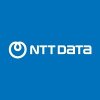Filter interviews by
Eviden Interview Questions and Answers
189 Interview questions
A trade cycle refers to the fluctuations in economic activity over time, characterized by periods of expansion and contraction.
Phases of the trade cycle include expansion, peak, contraction, and trough.
During expansion, economic indicators like GDP and employment rise.
A peak is reached when economic activity is at its highest before a downturn.
Contraction occurs when economic activity declines, leading to recessio...
A derivative represents the rate of change of a function with respect to a variable, often interpreted as the slope of a curve.
A derivative measures how a function changes as its input changes.
For example, if f(x) = x^2, then f'(x) = 2x, indicating the slope at any point x.
In physics, the derivative of position with respect to time gives velocity.
Derivatives are fundamental in calculus and are used in various fiel...
Capital markets deal with long-term investments, while money markets focus on short-term borrowing and lending.
Capital markets involve securities like stocks and bonds, while money markets involve instruments like Treasury bills and commercial paper.
Capital markets are used for raising long-term funds, whereas money markets are used for managing short-term liquidity needs.
Examples of capital market instruments inc...
The Cyber Kill Chain outlines stages of a cyber attack, from initial reconnaissance to execution and exfiltration.
1. Reconnaissance: Attackers gather information about the target, such as IP addresses and employee details.
2. Weaponization: Creating a malicious payload, like a virus or exploit, that can be delivered to the target.
3. Delivery: Transmitting the weapon to the target, often via phishing emails or malic...
Preparing Management Information Systems (MIS) involves data collection, analysis, and reporting for informed decision-making.
Identify key metrics: Determine what data is essential for decision-making, such as employee turnover rates or recruitment costs.
Data collection: Gather data from various sources like HR databases, payroll systems, and employee surveys.
Data analysis: Use analytical tools to interpret the da...
Over 10 years of experience in implementing and managing various technologies such as cloud computing, data analytics, and cybersecurity.
Implemented cloud computing solutions for multiple clients resulting in cost savings and increased efficiency.
Managed data analytics projects to provide actionable insights for decision-making.
Led cybersecurity initiatives to protect sensitive data and prevent security breaches.
C...
Prepare solution documents by outlining the problem, proposing solutions, detailing implementation steps, and providing supporting evidence.
Clearly define the problem statement and objectives.
Propose multiple solutions with pros and cons for each.
Detail the implementation steps, including timelines and resources needed.
Provide supporting evidence such as data analysis, research findings, and case studies.
Include v...
TIBCO EMS supports various acknowledgment modes for message delivery reliability and processing control.
Auto Acknowledgment: Messages are acknowledged automatically once received by the consumer.
Client Acknowledgment: The consumer explicitly acknowledges messages after processing them, allowing for more control.
Dups OK Acknowledgment: Acknowledgment is done in a way that allows for duplicate messages, useful in hi...
Design patterns are reusable solutions to common problems in software design.
Design patterns help in creating maintainable and scalable code.
They provide a common language for developers to communicate about solutions.
Examples include Singleton, Factory, Observer, and Strategy patterns.
Garbage collection is a process in computer programming where the system automatically reclaims memory occupied by objects that are no longer in use.
Garbage collection helps prevent memory leaks by automatically identifying and freeing up memory that is no longer needed.
There are different types of garbage collection algorithms such as mark and sweep, reference counting, and generational garbage collection.
Java an...
Eviden Interview Experiences
307 interviews found
(2 Questions)
- Q1. Cloud Architect expert level
- Q2. Cloud migration process and experience.
- Ans.
Cloud migration involves moving data, applications, and processes from on-premises servers to cloud infrastructure.
Assess current infrastructure and identify workloads to migrate
Choose the right cloud provider and migration strategy
Plan for data transfer, security, and compliance
Execute migration with minimal downtime and monitor performance
Optimize resources and costs post-migration
(1 Question)
- Q1. Migration tools process and experience
- Ans.
Migration tools process and experience
Migration tools help transfer data from one system to another seamlessly
Experience with various migration tools such as AWS Database Migration Service, Carbonite Migrate, etc.
Understanding of data mapping, transformation, and validation processes
Ability to troubleshoot migration issues and ensure data integrity
Collaboration with stakeholders to plan and execute migration strategies
(1 Question)
- Q1. Salary structure.
I appeared for an interview in May 2025, where I was asked the following questions.
- Q1. Financial analyst
- Q2. Derivatives and
- Q3. Capital market details
- Q4. Money market details
- Q5. Types of Bond
- Ans.
Bonds are debt securities used by entities to raise capital, with various types catering to different investor needs.
Government Bonds: Issued by national governments, e.g., U.S. Treasury Bonds.
Corporate Bonds: Issued by companies to raise funds, e.g., Apple Inc. bonds.
Municipal Bonds: Issued by local governments, often tax-exempt, e.g., city infrastructure bonds.
Zero-Coupon Bonds: Sold at a discount and pay no interest...
- Q6. Types of equity shares
- Ans.
Equity shares represent ownership in a company, entitling shareholders to dividends and voting rights.
Ordinary Shares: Commonly issued, providing voting rights and dividends (e.g., Apple Inc. shares).
Preference Shares: Fixed dividends, priority over ordinary shares in asset liquidation (e.g., preferred stock of Ford).
Redeemable Shares: Can be bought back by the company at a future date (e.g., redeemable preference shar...
- Q7. Types of preference Share
- Ans.
Preference shares are equity securities with preferential rights over common shares, often providing fixed dividends.
Cumulative Preference Shares: Unpaid dividends accumulate. Example: If a company skips a dividend, it must pay it later.
Non-Cumulative Preference Shares: No accumulation of unpaid dividends. Example: If dividends are not declared, shareholders lose those payments.
Participating Preference Shares: Sharehol...
- Q8. Debentures and going
- Q9. Market stock and
- Q10. Financial management
- Q11. Mutual funds and
- Q12. Personal work and
- Q13. Types of preference Share and
- Ans.
Preference shares are equity securities with preferential rights over common shares, often providing fixed dividends.
Cumulative Preference Shares: Unpaid dividends accumulate; e.g., if a company skips a dividend, it must pay it later.
Non-Cumulative Preference Shares: No accumulation of unpaid dividends; e.g., if a dividend is missed, shareholders lose that payment.
Participating Preference Shares: Shareholders can parti...
- Q14. Types of equity shares and
- Ans.
Equity shares represent ownership in a company, with various types catering to different investor needs and rights.
Ordinary Shares: Commonly issued, providing voting rights and dividends (e.g., shares of Apple Inc.).
Preference Shares: Offer fixed dividends and priority over ordinary shares in asset liquidation (e.g., preferred stock of Bank of America).
Cumulative Preference Shares: Accumulate unpaid dividends, ensuring...
- Q15. Were and Analysis and
- Q16. Preparation interview
- Q17. As there just
- Q18. Were and Analysis
- Q19. As there is
- Q20. Account details
Interview Preparation Tips
I applied via Referral and was interviewed in Jun 2024. There were 3 interview rounds.
(2 Questions)
- Q1. General question about project
- Q2. Basic question around java and spring boot
(3 Questions)
- Q1. Scenario based question o n ooad balancer and openshift related configuration
- Q2. How the arraylist data is getting sorted out. Based on what mechanism it is sorting
- Ans.
ArrayList in Java sorts data using the Collections.sort() method, which employs a dual-pivot quicksort algorithm.
ArrayList uses the Collections.sort() method for sorting.
The sorting mechanism is based on the dual-pivot quicksort algorithm.
Example: Sorting an array of strings like ['banana', 'apple', 'cherry'] results in ['apple', 'banana', 'cherry'].
The sort is stable, meaning equal elements maintain their relative ord...
- Q3. Project architecture level questions and questions around the flow
(2 Questions)
- Q1. Just basic question why looking for opportunity outside
- Q2. Package discussions
Interview Preparation Tips
Please tell me about solid principle
(2 Questions)
- Q1. Please tell me about design patters
- Ans.
Design patterns are reusable solutions to common problems in software design.
Design patterns help in creating maintainable and scalable code.
They provide a common language for developers to communicate about solutions.
Examples include Singleton, Factory, Observer, and Strategy patterns.
- Q2. Please tell me about garbage collection
Skills evaluated in this interview
(4 Questions)
- Q1. Views and m.Views
- Q2. Joins and cross join
- Q3. Diff parameter and variable
- Ans.
Parameters are values passed to a function, while variables are used to store data within a program.
Parameters are specified in the function definition, while variables are declared within the function body.
Parameters are used to pass values into a function, while variables are used to store values for later use.
Example: function add(num1, num2) { return num1 + num2; } - num1 and num2 are parameters, while result is st...
- Q4. Script taskand component
Skills evaluated in this interview
I appeared for an interview in Nov 2024.
(2 Questions)
- Q1. Related accounts payable
- Q2. People management
(2 Questions)
- Q1. End to end account payable
- Q2. People handling
Interview Preparation Tips
I appeared for an interview in Aug 2024.
(2 Questions)
- Q1. How to create an EC2 instance using terraform
- Ans.
To create an EC2 instance using Terraform, you need to define the instance configuration in a Terraform file and then apply the configuration using Terraform commands.
Define the EC2 instance configuration in a Terraform file using the 'aws_instance' resource type
Specify the instance type, AMI ID, key pair, security group, and other necessary parameters in the configuration
Run 'terraform init' to initialize the Terrafor...
- Q2. Questions on vpc, elbow, security groups
Skills evaluated in this interview
I appeared for an interview in Mar 2025, where I was asked the following questions.
- Q1. Tell Me About Yourself
- Q2. What Is Capital Market
- Ans.
Capital markets are platforms for buying and selling financial securities, facilitating investment and funding for businesses and governments.
Capital markets include stock markets (e.g., NYSE, NASDAQ) where shares of companies are traded.
They also encompass bond markets where debt securities are issued and traded, such as U.S. Treasury bonds.
These markets enable companies to raise capital for expansion and operations b...
Apptitude questions logical and technical questions and queries
(1 Question)
- Q1. About c programing
(1 Question)
- Q1. Behavioral questions
I applied via Job Portal and was interviewed in Jun 2024. There were 2 interview rounds.
Simple aptitude test
(2 Questions)
- Q1. Why you sre changing domain
- Ans.
Changing domain to improve security and efficiency.
Current domain lacks necessary security measures.
New domain offers better performance and scalability.
Migration to new domain aligns with company's strategic goals.
- Q2. Expected salary and willing to work in rotational
- Ans.
I expect a competitive salary based on industry standards and am open to rotational shifts for flexibility and team support.
My expected salary is in the range of $70,000 to $80,000, depending on the responsibilities and benefits offered.
I believe in the importance of teamwork and am willing to work in rotational shifts to ensure coverage and support for the team.
For example, in my previous role, I successfully managed ...
Top trending discussions






Eviden Interview FAQs
The duration of Eviden interview process can vary, but typically it takes about less than 2 weeks to complete.
Tell us how to improve this page.
Eviden Interviews By Designations
- Eviden Associate Consultant Interview Questions
- Eviden Consultant Interview Questions
- Eviden Associate Interview Questions
- Eviden Financial Analyst Interview Questions
- Eviden Senior Associate Interview Questions
- Eviden KPO Officer Interview Questions
- Eviden Software Engineer Interview Questions
- Eviden Senior Consultant Interview Questions
- Show more
Interview Questions for Popular Designations
Overall Interview Experience Rating
based on 208 interview experiences
Difficulty level
Duration
Interview Questions from Similar Companies
Eviden Reviews and Ratings
based on 4.6k reviews
Rating in categories
|
Associate Consultant
8.2k
salaries
| ₹3.6 L/yr - ₹9.5 L/yr |
|
Consultant
3.8k
salaries
| ₹8.3 L/yr - ₹24 L/yr |
|
Associate
1.7k
salaries
| ₹1.6 L/yr - ₹4.5 L/yr |
|
Senior Consultant
1.2k
salaries
| ₹18.5 L/yr - ₹33 L/yr |
|
Senior Associate
1.1k
salaries
| ₹2.2 L/yr - ₹7.2 L/yr |

Genpact

DXC Technology

Sutherland Global Services

Optum Global Solutions
- Home >
- Interviews >
- Eviden Interview Questions













